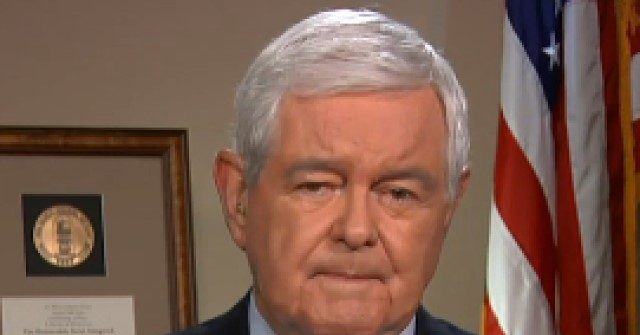Former House Speaker Newt Gingrich has voiced his perspective that Republicans should not fear a government shutdown, citing the recent release of a controversial and extensive 1,547-page spending deal filled with what he describes as “pork and special giveaways.” He believes that President Trump and the GOP should stand firm against such proposals and suggests that a government shutdown could serve as a necessary measure to reinforce their commitment to fundamental changes in governance. Referring back to the historical context, Gingrich recalls the government shutdowns of 1995, which resulted in the Republican Party becoming the first House GOP majority reelected since 1928, implying that such bold actions could galvanize support among the conservative base and signal seriousness about long-standing issues such as the “draining the swamp” mantra.
Echoing Gingrich’s sentiments, Rep. Marjorie Taylor Greene (R-GA) has rallied behind the idea of a government shutdown, expressing her willingness to see it last until January 20th, 2025, if necessary. Greene frames her commitment as a stand for the American people against what she perceives as government overreach and fiscal irresponsibility, declaring her readiness to withdraw support from House Speaker Mike Johnson (R-LA) if he continues to back the controversial spending measure. Her remarks suggest a significant rift within the party, where factions may prioritize ideological purity over party unity. Greene’s willingness to consider new leadership underscores the stakes involved amid intra-party debates regarding budgetary negotiations and broader political strategies going into upcoming elections.
Despite the backing from Greene and Gingrich for more drastic actions, there appears to be a growing division among Republicans regarding support for the spending deal negotiated by Speaker Johnson. Critics within the party have expressed discontent, specifically targeting provisions such as a pay raise for Congress members and an option allowing them to opt out of Obamacare. These aspects of the deal have become flashpoints, with conservative members indicating that they may not back it, even to the extent of threatening to support alternative candidates for leadership roles if their demands are not met. Rep. Thomas Massie (R-KY) has openly stated his intention to vote for someone other than Johnson in the next speaker election, highlighting the discontent brewing among hardline conservatives.
The discontent isn’t just limited to individual sentiments; it reflects broader concerns about the direction of the Republican Party under Johnson’s leadership and the types of deals being made. As the government shutdown looms, Republican members appear divided about whether to push for a rapid resolution through a clean continuing resolution or to stand their ground against what they consider unsatisfactory compromises. Vice President-elect JD Vance (R-OH) has been communicating with Johnson in an effort to address the coalition’s concerns and seek common ground in negotiations, but the internal disagreements make clear that achieving a consensus will be challenging.
As the situation develops, the future of Johnson’s speakership is precarious. The factionalism inherent within the Republican Party regarding spending and governance strategies could have long-lasting implications not just for leadership choices, but also for the party’s electoral strategy moving forward. The stark contrast in opinions about government shutdowns reveals deep ideological divides concerning fiscal policy and the perceived responsibilities of elected officials towards their constituents. This battle over budget priorities is indicative of larger struggles within the party as it seeks to define its identity and approach in the lead-up to the next election while also managing the expectations of its base.
Republicans’ willingness to navigate potential government shutdowns showcases the tension between strategic political moves and the realities of governing. As debates intensify over spending measures, Republican leaders must weigh the prospects of immediate shutdowns against the backdrop of upcoming elections, the importance of party unity, and the imperatives of addressing constituent concerns. The stake here is not just the specific provisions of spending bills but the party’s broader ability to rally support and maintain influence in a complex political landscape. Going forward, the decisions made by party members will inevitably shape the narrative leading into the 2024 election cycle and could redefine the Republican Party’s future.

